When you think of a traditional soup, one of the first that comes to mind is certainly Ribollita! An emblem of peasant cuisine from Tuscany and the winter season, it’s a warm, comforting, and very tasty first course. Every tourist passing through Florence has tasted it at least once at a typical cuisine restaurant!
This is the traditional recipe from my family, found among the pages of my mother’s notebooks that we used to eat when in winter the kale had frosted. In this recipe, as in many from Tuscan peasant tradition, the choice of ingredients, especially bread, kale, and cannellini beans, is essential! It’s a first course that satisfies everyone: being free of animal products, it’s suitable for vegans and vegetarians. The Traditional Tuscan Ribollita Recipe is not difficult, but it is laborious and lengthy… however, it’s really worth it.
For more Tuscan recipes, especially first courses, I recommend checking out these links
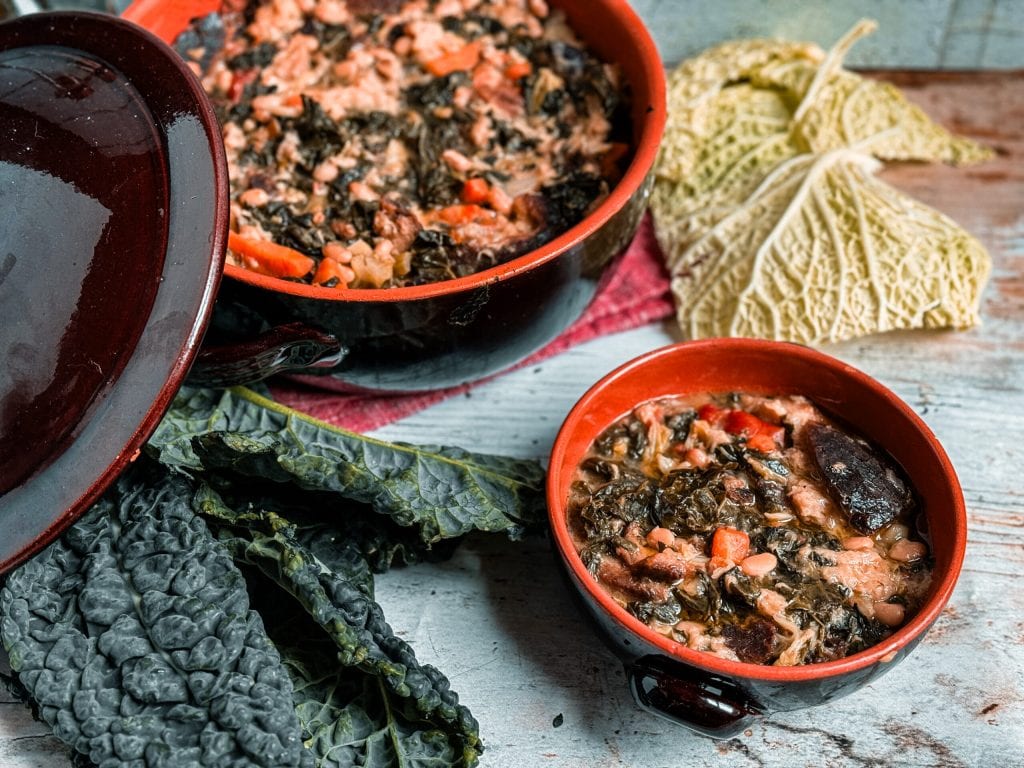
- Difficulty: Easy
- Cost: Very inexpensive
- Rest time: 12 Hours
- Preparation time: 45 Minutes
- Portions: 6
- Cooking methods: Stovetop
- Cuisine: Italian
- Seasonality: Autumn, Winter
Ingredients
The Traditional Tuscan Ribollita has some fundamental elements like kale, cannellini beans, and bread. The rest is made with “whatever is available.” Many times my mother made it using leftover minestrone or with vegetables she had in the fridge! It’s a great way to avoid waste, and in this period of increased environmental awareness, it’s always a good thing!
- 7 oz Savoy cabbage
- 9 oz kale
- 7 oz potato
- 5 oz Swiss chard
- 2 oz celery
- 5 oz dried cannellini beans
- 3.5 oz tomatoes (ripe)
- 2 oz carrots
- 2 cloves garlic
- 2 oz red onion
- 7 oz Tuscan bread (stale)
- 1/3 cup extra virgin olive oil
- to taste thyme
- 1 pinch salt
- 2 quarts water
Tools
- 1 Raw clay pot clay
- 1 Pressure cooker
- 1 Cutting board
- 1 Bowl
Steps
The characteristic of the Traditional Tuscan Ribollita is that it is “reboiled”; it acquires flavors and textures after resting overnight and then being reboiled (or baked in the oven). That’s why you need to consider at least a couple of days before you can taste it!
After soaking the dried cannellini beans overnight, place them in a pressure cooker, cover with water, add a pinch of salt and cook. Set aside in a bowl along with some cooking liquid.
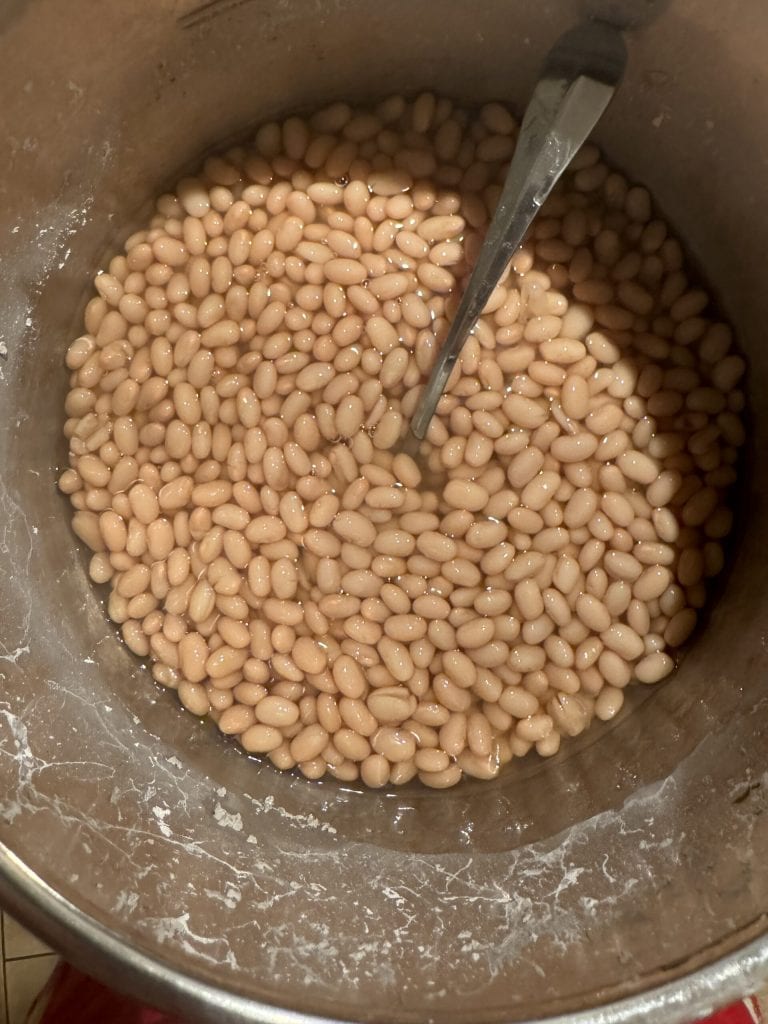
Trim and clean the vegetables and cut them into pieces. In a tall saucepan, add the vegetables (except the onions) and the potatoes cut into pieces.
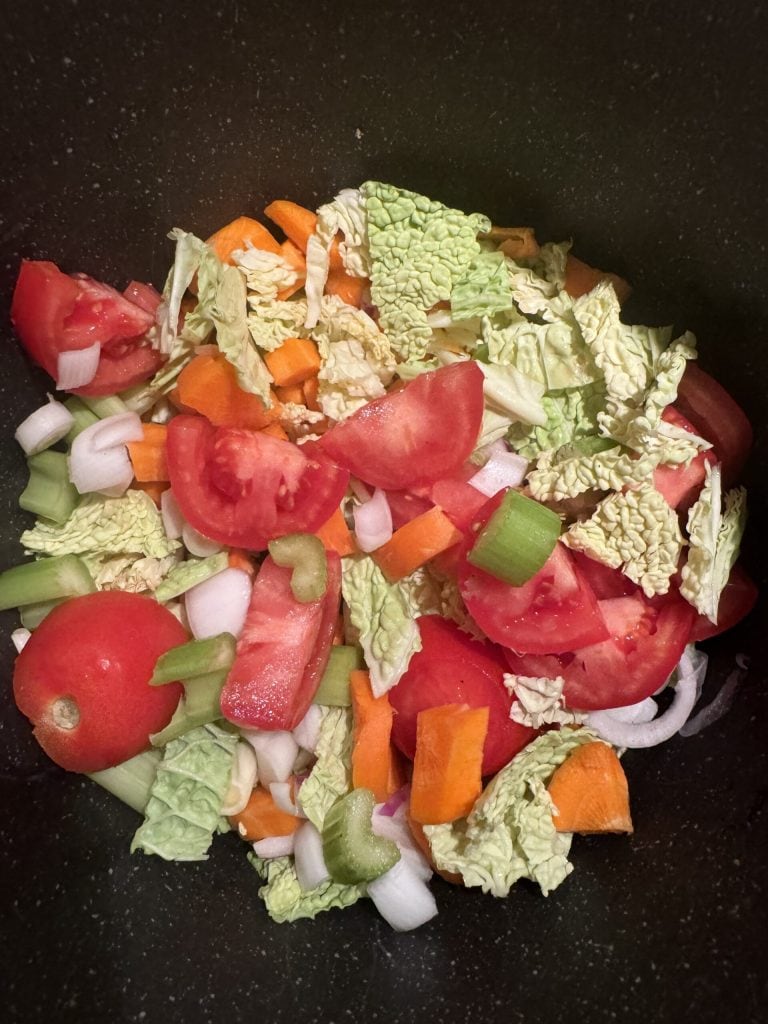
Cover with water, add salt and the chosen spices, and bring to heat.
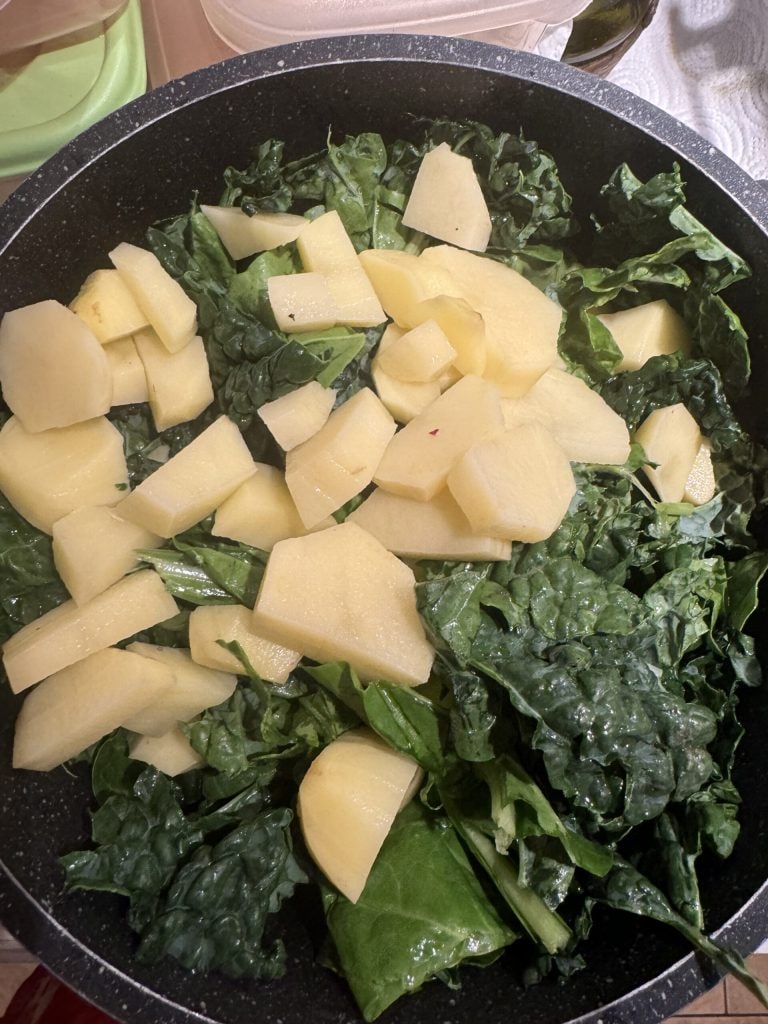
Cook over moderate heat for about fifty minutes or until the vegetables are cooked and the liquid has reduced a little.
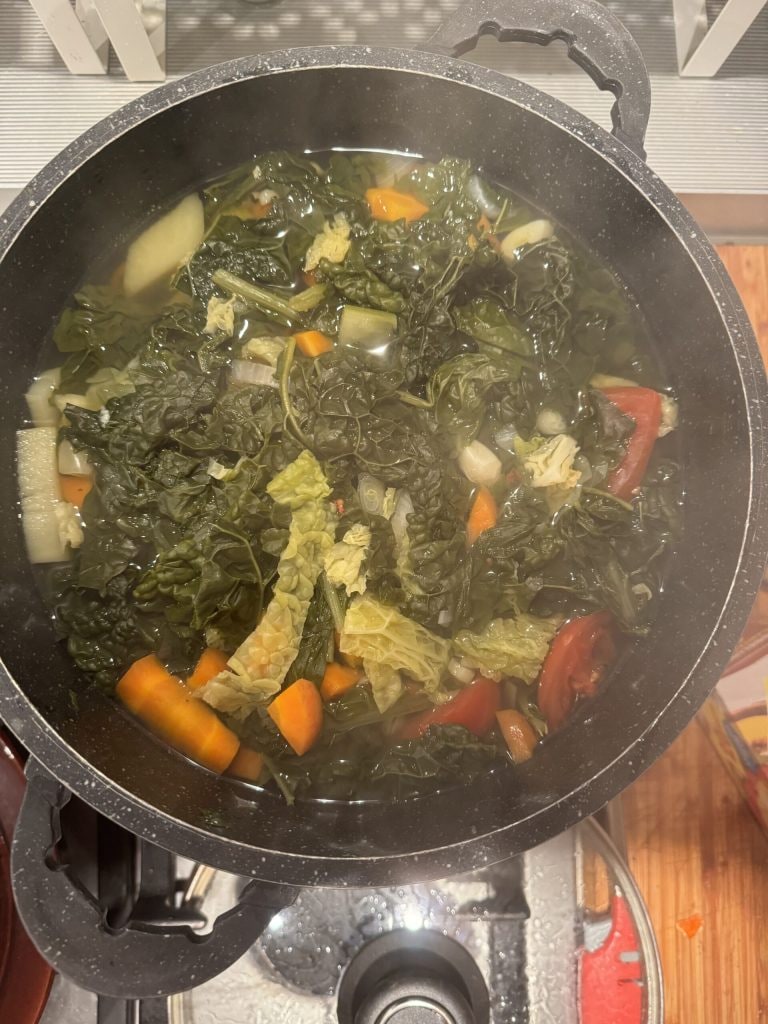
In the clay casserole, place the onion, thyme, and half of the olive oil specified in the recipe, and sauté.
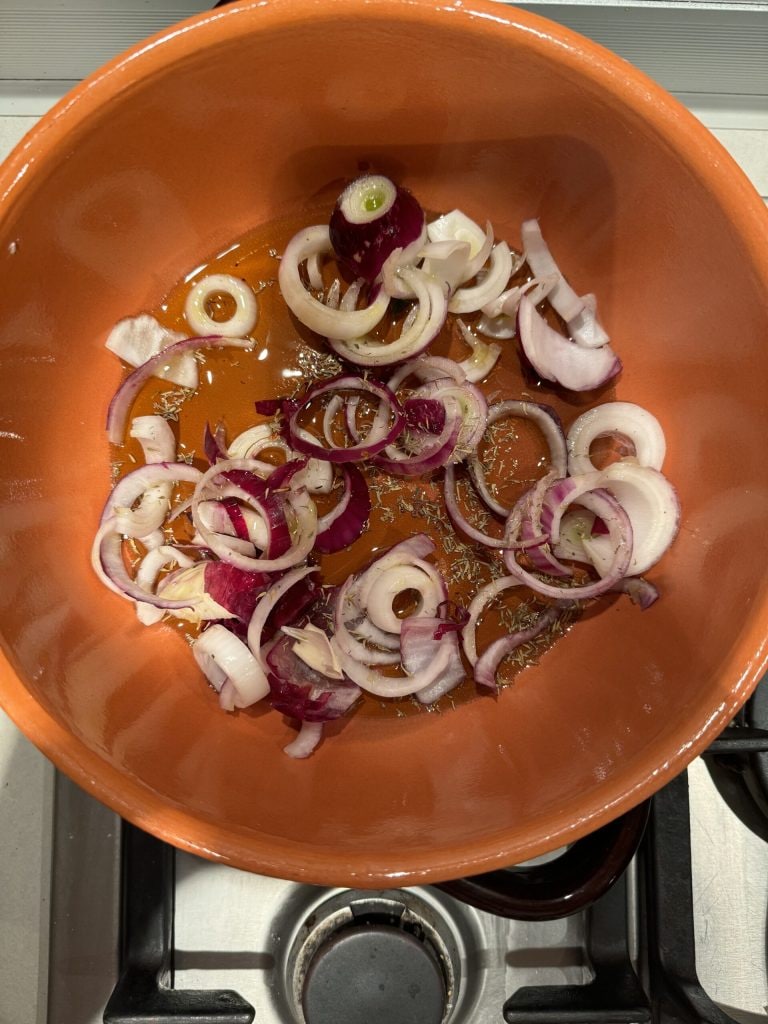
Place the stale bread (in slices or pieces) at the bottom and pour over the vegetable soup to which the cannellini beans with some of their cooking liquid have been added. Salt and pepper.
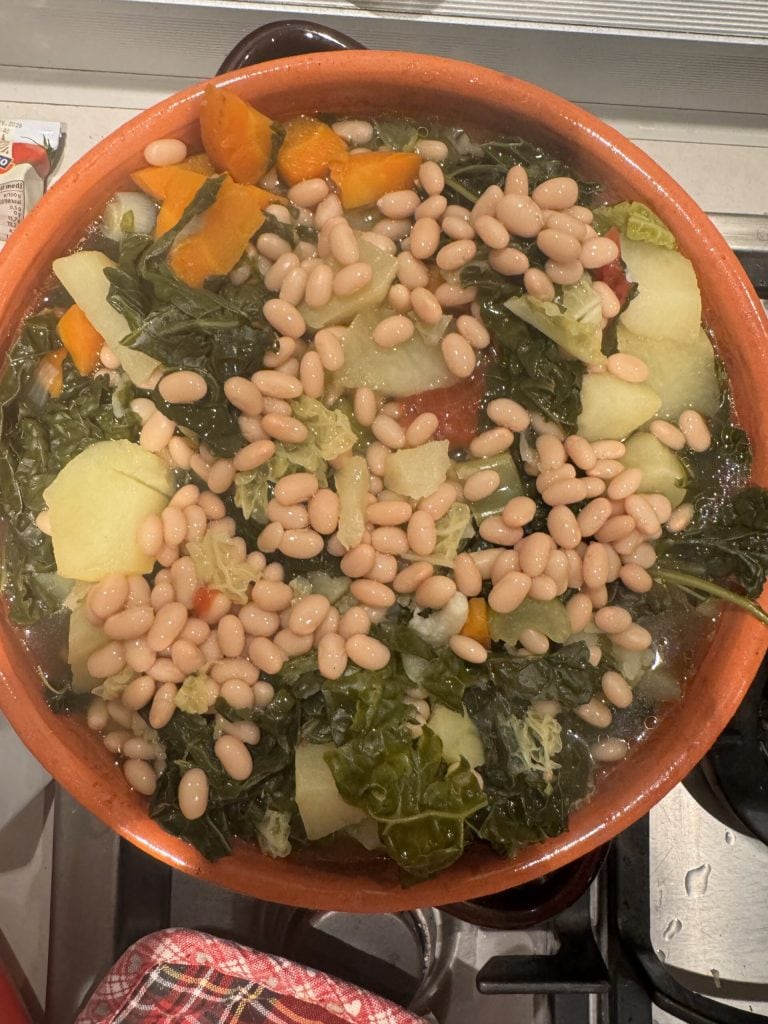
Boil for 15 minutes covered over low heat and then turn off. Leave to rest overnight. This will create an extraordinary mix of flavors and aromas.
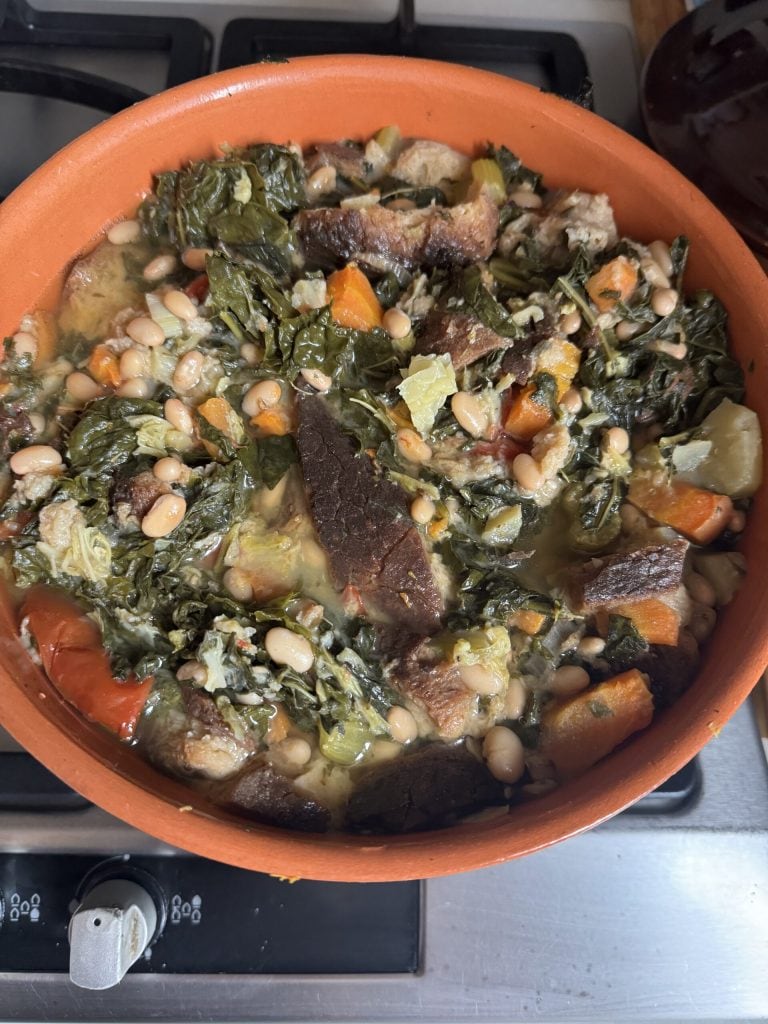
The next day before serving, light the fire and reboil the soup for 15 minutes over low heat, adding the remaining oil and adjusting the saltiness.
Alternatively, you can choose to reheat it in a hot oven at 300°F for about ten minutes.
Serve, preferably in a clay terrine, with a drizzle of raw oil and freshly ground pepper.
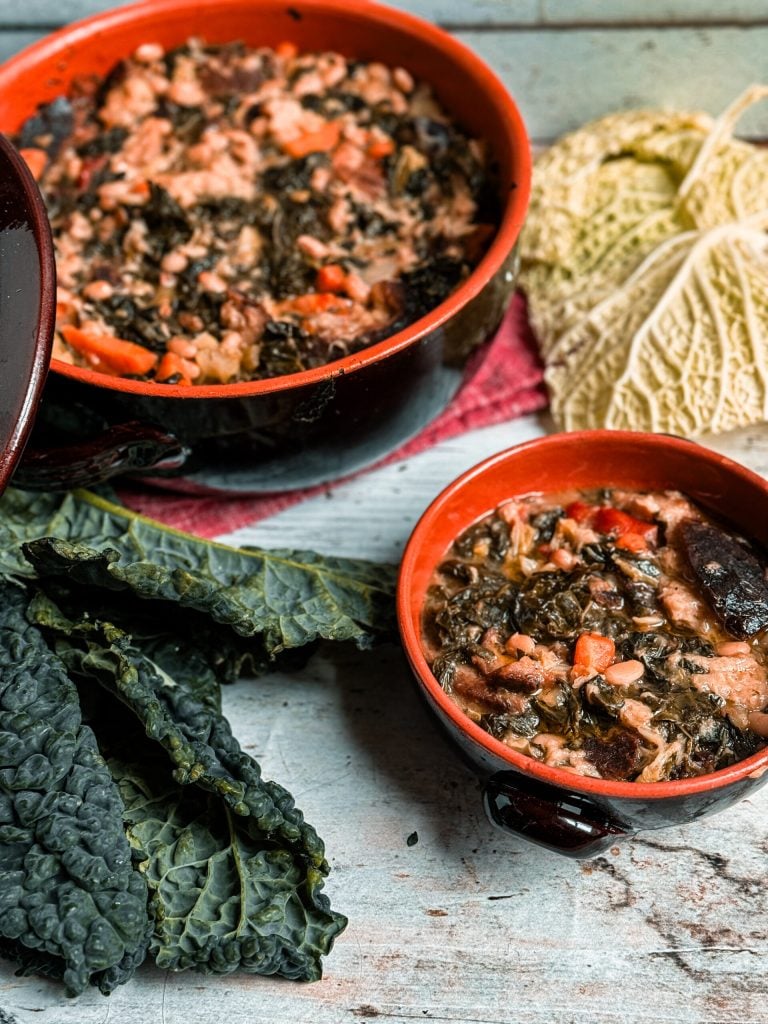
The Traditional Tuscan Ribollita is a perfect soup for cold days, to welcome vegan friends, and to take a trip to the table of early 20th-century Tuscan farmers. Have you ever eaten Tuscan Ribollita? Come tell me on Instagram
FAQ (Questions and Answers)
How long does the Traditional Tuscan Ribollita last?
Ribollita can be stored in the fridge for two to three days. Each time it’s reheated, it gains flavor, which is also one of the reasons it’s a pillar of Tuscan peasant cuisine.
What if I don’t have these vegetables?
The ingredients that cannot be missing are kale, cannellini beans, bread, potatoes, and the onion sauté. Everything else can be varied.
Can I use pre-cooked beans?
Of course, but you need to rinse them because they are very salty. This is why you need to be careful and properly calibrate the salt in the rest of the preparation.

